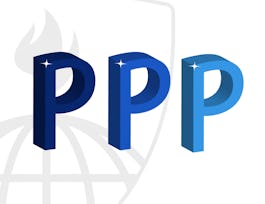This course provides an introduction to systems thinking and systems models in public health. Problems in public health and health policy tend to be complex with many actors, institutions and risk factors involved. If an outcome depends on many interacting and adaptive parts and actors the outcome cannot be analyzed or predicted with traditional statistical methods. Systems thinking is a core skill in public health and helps health policymakers build programs and policies that are aware of and prepared for unintended consequences.



Systems Thinking In Public Health


Instructors: David Bishai, MD, PhD
57,858 already enrolled
Included with 
(916 reviews)
Details to know

Add to your LinkedIn profile
4 assignments
See how employees at top companies are mastering in-demand skills


Earn a career certificate
Add this credential to your LinkedIn profile, resume, or CV
Share it on social media and in your performance review

There are 4 modules in this course
This module introduces the basics of systems thinking and the rationale for using a systems approach to solve public health problems in complex adaptive systems.
What's included
8 videos12 readings1 assignment1 discussion prompt
This module will introduce you to the concepts of causal loop diagrams and how they can be used in participatory research. You will also be introduced to the software Vensim that allows you to draw causal loop diagrams.
What's included
8 videos9 readings1 assignment1 discussion prompt
This module will introduce you to the concepts of systems dynamics modeling and will show you how to use Vensim to run a pre-existing system dynamics model.
What's included
13 videos11 readings1 assignment2 discussion prompts
This Module wraps up the course and shows you how systems thinking can contribute to policy making.
What's included
6 videos3 readings1 assignment1 discussion prompt
Instructors

Offered by
Recommended if you're interested in Public Health

Coursera Instructor Network

The University of Tokyo

Johns Hopkins University

Johns Hopkins University
Why people choose Coursera for their career




Learner reviews
Showing 3 of 916
916 reviews
- 5 stars
70.62%
- 4 stars
23.72%
- 3 stars
4.24%
- 2 stars
0.65%
- 1 star
0.76%
New to Public Health? Start here.

Open new doors with Coursera Plus
Unlimited access to 7,000+ world-class courses, hands-on projects, and job-ready certificate programs - all included in your subscription
Advance your career with an online degree
Earn a degree from world-class universities - 100% online
Join over 3,400 global companies that choose Coursera for Business
Upskill your employees to excel in the digital economy
Frequently asked questions
Access to lectures and assignments depends on your type of enrollment. If you take a course in audit mode, you will be able to see most course materials for free. To access graded assignments and to earn a Certificate, you will need to purchase the Certificate experience, during or after your audit. If you don't see the audit option:
The course may not offer an audit option. You can try a Free Trial instead, or apply for Financial Aid.
The course may offer 'Full Course, No Certificate' instead. This option lets you see all course materials, submit required assessments, and get a final grade. This also means that you will not be able to purchase a Certificate experience.
When you purchase a Certificate you get access to all course materials, including graded assignments. Upon completing the course, your electronic Certificate will be added to your Accomplishments page - from there, you can print your Certificate or add it to your LinkedIn profile. If you only want to read and view the course content, you can audit the course for free.
You will be eligible for a full refund until two weeks after your payment date, or (for courses that have just launched) until two weeks after the first session of the course begins, whichever is later. You cannot receive a refund once you’ve earned a Course Certificate, even if you complete the course within the two-week refund period. See our full refund policy.

